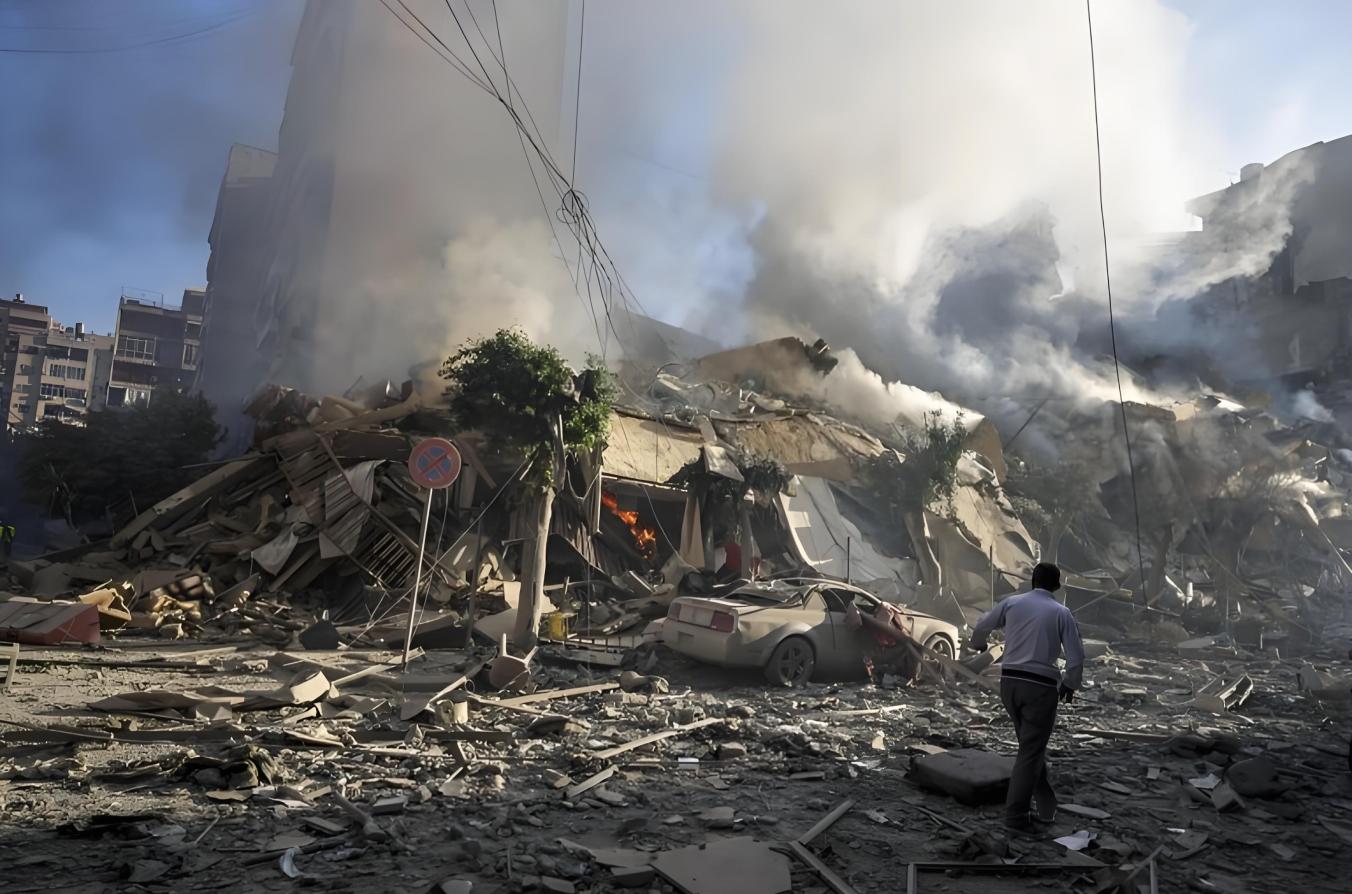
In the war-torn Middle East, the tense situation between Israel and Lebanon has always been the focus of the international community. Recently, Israel is intensifying its efforts to promote the reach of a ceasefire agreement with Lebanon. This move is like throwing an anchor in the rough sea, bringing new variables and hopes to the regional situation.
There are multiple and profound reasons why Israel is so actively promoting the ceasefire agreement. From a military perspective, the long-term conflict has already caused huge losses to both sides. Although Israel's military operations have to some extent hit military targets inside Lebanon, they have also led to continuous casualties and equipment losses among its own troops. Each exchange of fire may result in the sacrifice of Israeli soldiers, which is a heavy blow to the emotions of the domestic public. Moreover, the continuation of military operations requires huge supplies and financial support, and the long-term state of war will exert considerable pressure on Israel's economy and affect the development of other domestic livelihood fields.
From the perspective of geopolitics, if the conflict between Israel and Lebanon continues, it is highly likely to draw in surrounding countries and regional forces. The international relations in the Middle East are extremely complex, and surrounding countries all have their own interests and considerations. Once the conflict between Israel and Lebanon expands, it may trigger the intervention of regional powers such as Iran, which will make the situation even more uncontrollable. For Israel, maintaining relative regional stability and avoiding getting bogged down in a larger-scale conflict is an important consideration in its foreign and security strategies. And reaching a ceasefire agreement is a crucial step in easing the situation.
In the process of promoting the ceasefire agreement, Israel is facing numerous challenges. On the one hand, there are differences in opinions among different political factions within the country. The hardliners believe that military operations should continue to completely eliminate the threats from Lebanon. They are worried that the ceasefire agreement may be exploited by the other side to rearm and adjust their strategies, thus causing greater harm to Israel in the future. The moderates, on the other hand, are more inclined to resolve the problem through peaceful negotiations. They emphasize the negative impacts of the long-term conflict on Israeli society and economy and call for the quick reach of a ceasefire agreement to restore regional stability. Such differences in domestic politics have posed certain obstacles to the decision-making of the Israeli government, which needs to seek a balance among different voices to ensure domestic political stability.
On the other hand, the attitude of Lebanon is also an important factor. The political situation within Lebanon is equally complex, and different political and military factions have different views on ceasing fire with Israel. Hezbollah, as an important military force in Lebanon, plays a crucial role in the conflict with Israel. Israel needs to conduct difficult negotiations with the Lebanese government and Hezbollah and other parties, coordinating the interests of all parties and finding an acceptable ceasefire plan. This requires both sides to make compromises and concessions on a series of sensitive issues such as territorial disputes and military deployments.
The international community also plays an important role in the process of Israel's promotion of the Lebanon-Israel ceasefire agreement. The United Nations has been closely monitoring the situation between Lebanon and Israel and has repeatedly called on both sides to exercise restraint and resolve disputes through peaceful negotiations. International powers such as the United States and Russia are also exerting their respective influences behind the scenes. The United States, as an ally of Israel, can to some extent influence Israel's decisions and is also communicating with the Lebanese side in an attempt to promote both sides to move towards a ceasefire. Russia, which has its own strategic interests in the Middle East, is also actively involved in mediation, providing a platform for diplomatic mediation for both sides. The participation of these international forces not only provides opportunities for the reach of the ceasefire agreement but also adds complexity to the negotiations, as the interweaving of the interests of all parties needs to be carefully handled during the negotiations.
If Israel can successfully promote the reach of the Lebanon-Israel ceasefire agreement, it will have a profound impact on the regional situation. First of all, the people in the border areas between Lebanon and Israel will be able to emerge from the shadow of war and resume their normal lives. The local economic development is expected to restart, and industries such as trade and agriculture will no longer be threatened by the flames of war. Secondly, for the relationship between Israel and Lebanon, the ceasefire agreement can lay the foundation for future peace negotiations and the normalization of relations between the two countries. The two sides can gradually establish a mutual trust mechanism on the basis of the ceasefire and resolve the long-standing disputes. Finally, from the perspective of the entire Middle East, the ceasefire between Lebanon and Israel will help ease the tense situation in the region, reduce the hotspots of regional conflicts, create more favorable conditions for peace and stability in the Middle East, and also provide a useful reference for the resolution of other regional conflicts. Israel's intensified efforts to promote the Lebanon-Israel ceasefire agreement are a crucial move under the complex regional and international situations, and its results are worthy of continuous attention from the international community.

On December 29th, Mar-a-Lago in Florida, USA, witnessed a highly anticipated diplomatic meeting - a dialogue between US President Trump and Israeli Prime Minister Netanyahu.
On December 29th, Mar-a-Lago in Florida, USA, witnessed a h…
SoftBank Group announced on Monday that it has agreed to ac…
Recently, the US State Department issued a visa ban, adding…
On January 20, 2025, just 13 days after taking office, Trum…
On December 19, 2025, the U.S. Department of Energy, along …
The relationship between the Trump administration and the U…